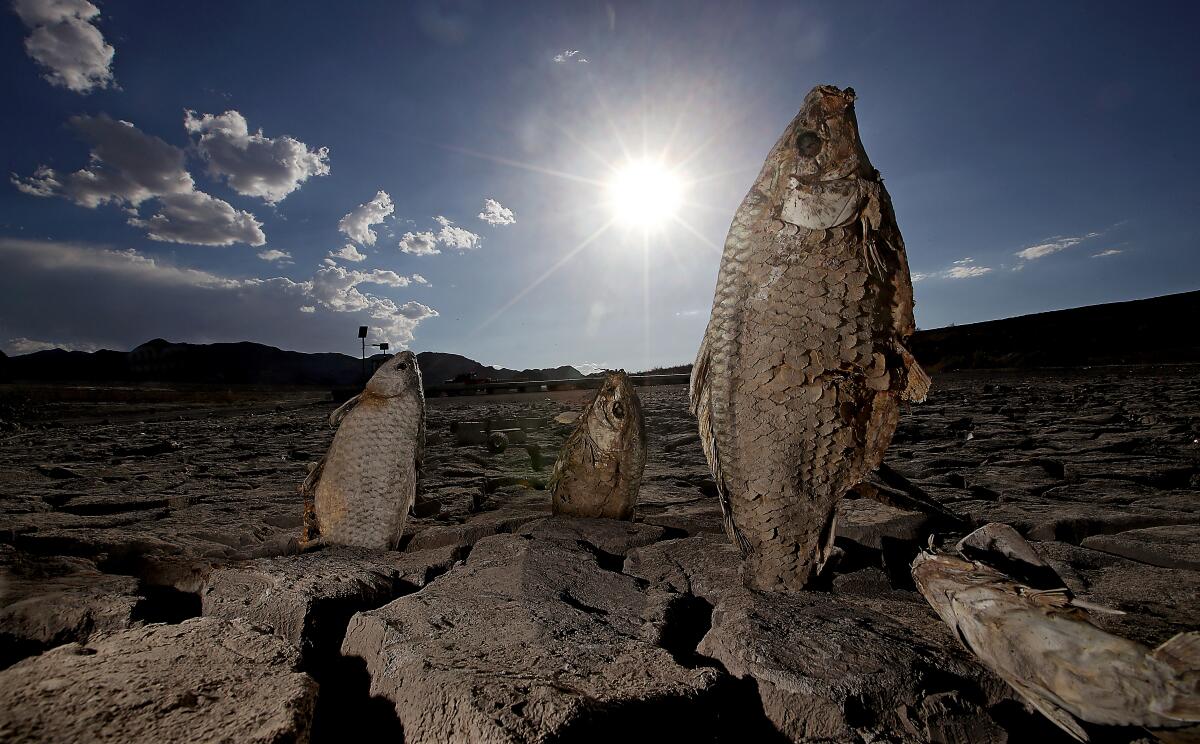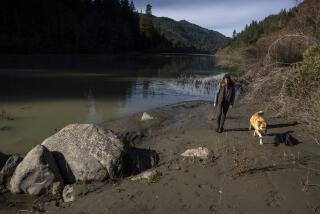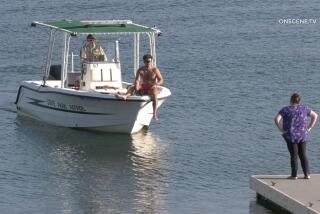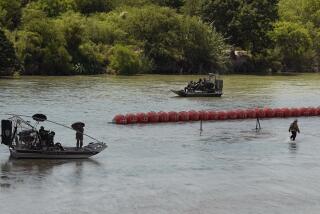Fifth set of human remains found at diminishing Lake Mead

For the fifth time since May, human remains were discovered at Lake Mead as water levels have fallen to historic lows at the country’s largest artificial reservoir.
Details are scant, but rangers with the National Park Service reported the skeletal remains were found around 8 p.m. Monday at the lake’s Swim Beach. The area was closed off, and the Las Vegas Metropolitan Police Department’s dive team responded to assist with securing the remains.
On May 1, boaters docking at Hemenway Harbor on the lake’s south end found a corroded barrel sticking out of the mud in the lake bed. Skeletal remains inside the barrel were determined to be from a person who was shot and thrown into the lake sometime in the late 1970s or early 1980s based on the clothing and shoes, Las Vegas police said.
Less than a week after the barrel was discovered, sisters Lynette and Lindsey Melvin found another set of remains in a sand bar while paddle boarding near Callville Bay in the west end of Lake Mead.
As Lake Mead shrinks after almost two decades of severe drought, accumulated items on the lakebed are being exposed.
Remains were found on July 25 and again on Aug. 6 at Swim Beach, the area where this week’s discovery was made. It was not clear whether the three sets of remains found at Swim Beach came from separate bodies.
Las Vegas Metropolitan Police Lt. Ray Spencer said it did not surprise him that bodies were being discovered as Lake Mead recedes and expected more to be found when the first skeletal remains were found in May.
Water levels on Lake Mead have dropped to lows not seen since the 1930s. A bathtub-like ring encircles the water, showing where the lake once reached.
Though the reservoir got a slight boost thanks to monsoon rains and flash floods this month, it has not been nearly enough to make up for the drought. On Wednesday, water levels were at 1,042 feet, compared with 1,067 feet this time last year and 1,084 feet in 2020, according to the U.S. Bureau of Reclamation.
NASA satellite imagery shows a dramatic change over the last 20 years at the body of water, which has dropped to just over a quarter of its capacity.
More to Read
Sign up for Essential California
The most important California stories and recommendations in your inbox every morning.
You may occasionally receive promotional content from the Los Angeles Times.












